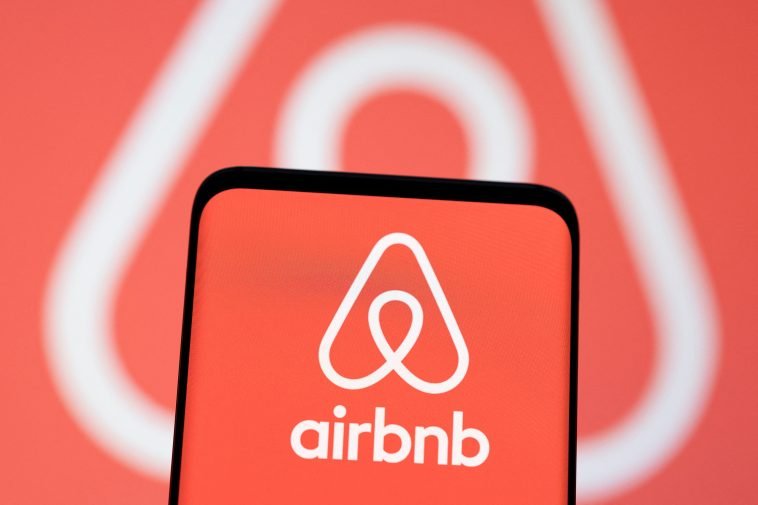Introduction.
Starting an Airbnb business can be exciting and profitable, especially as short-term rentals continue to grow in popularity.
However, managing rental properties comes with specific legal, financial, and logistical challenges, especially when leasing properties for corporate purposes.
One approach many successful Airbnb operators use is obtaining a corporate lease, which allows them to lease properties specifically for subletting to short-term renters. But how exactly do you get a corporate lease, and what should you know before signing?
This guide covers what a corporate lease is, how to get one for an Airbnb business, and everything in between. I’ll go over the steps to secure a corporate lease, the pros and cons, some essential tips, and answers to frequently asked questions.
What Is a Corporate Lease?
A corporate lease is a type of rental agreement where a business—rather than an individual—signs the lease on a property.
In the context of an Airbnb business, a corporate lease allows you to lease properties in your company’s name and legally sublet them to short-term renters.
These leases are common in the corporate housing industry, where companies rent properties to accommodate their traveling employees.
In the Airbnb space, corporate leases are valuable because they provide a solid, legal foundation for renting out spaces without the typical personal-residential lease limitations.
Why Consider a Corporate Lease for Airbnb?
Corporate leases offer several advantages:
- Flexibility: They allow businesses to manage multiple properties without requiring each property to be under a personal lease.
- Legal Security: Since corporate leases typically allow subletting, they help you avoid potential legal issues tied to standard leases that prohibit subleasing.
- Professional Image: With a corporate lease, landlords are more likely to see you as a business partner rather than an individual tenant.
How Do I Get a Corporate Lease For My Airbnb Business?
- Establish Your Business Structure
- Before you can obtain a corporate lease, you’ll need to register your Airbnb business as a legal entity, such as an LLC (Limited Liability Company). This structure provides a formal foundation for business operations and protects personal assets from liabilities associated with the rental properties.
- Prepare a Business Plan
- Landlords will want to know that you have a solid business model. Include specifics such as target markets, revenue projections, property management strategies, and how you’ll handle guest vetting and property maintenance. Presenting a well-thought-out plan can reassure landlords of your professionalism.
- Identify Target Properties and Areas
- Research potential neighbourhoods and properties that attract high short-term rental demand. Areas near airports, city centres, and tourist destinations often perform well on Airbnb. Consider amenities, safety, and proximity to popular locations.
- Approach Property Owners Directly
- Many large property management companies may be reluctant to sign corporate leases for Airbnb use, so consider approaching individual property owners or smaller management companies. Build a relationship, and make your business intentions clear from the start. Highlight benefits like regular income, professional property management, and high standards for guest vetting.
- Negotiate Lease Terms
- Once you find a willing landlord, negotiate terms that align with Airbnb requirements. Make sure the lease explicitly permits subleasing or short-term rentals. You may need to offer slightly higher rent or additional security deposits to assure the landlord.
- Ensure Compliance with Local Regulations
- Short-term rental regulations vary by city and region, so it’s crucial to stay up-to-date on local laws. Some places have restrictions or require permits, while others ban short-term rentals altogether. By understanding the legal framework, you can avoid fines or lease termination.
- Set Up Professional Property Management
- For smooth operations, consider using professional property management services or software to manage bookings, cleanings, and guest communications. A corporate lease often involves multiple properties, so reliable property management can help you maintain consistency and quality across listings.
Pros and Cons of a Corporate Lease for Airbnb
Pros
- Legally Supported Subletting: You gain explicit permission to operate short-term rentals, reducing the risk of disputes with landlords.
- Professional Image: A corporate lease strengthens your business credibility, potentially giving you access to better properties and partnerships.
- Financial Independence: Operating multiple listings under one business entity allows for streamlined accounting, tax benefits, and potential growth opportunities.
Cons
- Higher Initial Costs: Corporate leases often come with higher rents and deposits. Some landlords may charge extra to offset the perceived risk of a short-term rental business.
- Complexity: The corporate lease process can be more complex, with additional negotiations and paperwork.
- Regulation Challenges: Short-term rental regulations are dynamic, and some areas might restrict or even prohibit corporate leases for Airbnb purposes.
FAQs
Q1: Can I use a corporate lease for Airbnb in any location?
Not necessarily. Short-term rental regulations vary significantly by city, state, and even neighbourhood.
Many cities require permits or restrict the number of days a property can be rented short term.
Some regions may also outright ban corporate leasing for Airbnb purposes. It’s essential to check local laws and consult with a real estate lawyer if needed.
Q2: What type of business structure should I choose for my Airbnb business?
Most operators use an LLC structure for Airbnb businesses because it offers liability protection and tax advantages. However, you may also consider other structures depending on your growth plans and specific needs.
Q3: How do I convince a landlord to agree to a corporate lease?
Transparency is key. Explain your business model, show them your business plan, and be upfront about short-term rental intentions.
Offer assurances like higher security deposits, regular property maintenance, or agreeing to minimum guest vetting standards to ease their concerns.
Q4: Do I need special insurance for corporate leases on Airbnb?
Yes, you should have both business insurance and specialized short-term rental insurance. Regular landlord insurance may not cover the liabilities associated with Airbnb rentals, so you’ll want coverage that includes guest-related risks and property damages specific to short-term stays.
Q5: What is the typical lease duration for a corporate Airbnb lease?
Lease durations vary but are often between one and three years. Longer leases can be beneficial for securing stable rental rates but require a higher level of commitment. Some landlords may offer shorter terms if you’re willing to pay slightly more per month.
Conclusion
Securing a corporate lease for your Airbnb business involves a few extra steps and planning, but the benefits—legal compliance, streamlined management, and professional growth—can make it worth the effort.
Whether you’re just getting started or looking to expand your short-term rental portfolio, a corporate lease could be the perfect next step for a scalable Airbnb operation.
What do you think? Would a corporate lease fit your Airbnb business plan?





GIPHY App Key not set. Please check settings